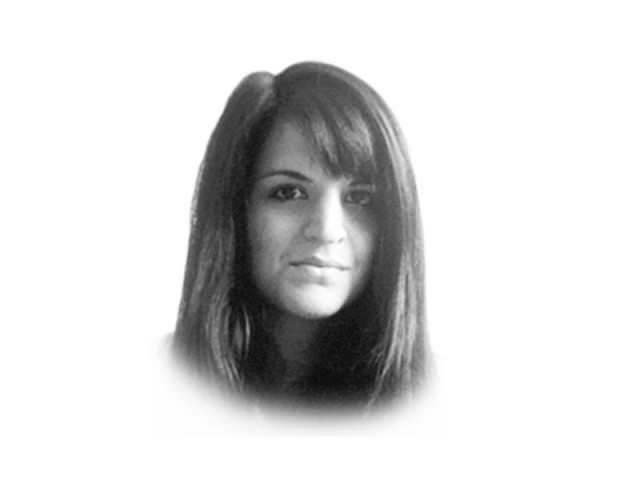In search of a saviour
The numbers of people turning out in support of cleaner government, fairer system demonstrates desperation for saviour

The writer is a journalist based between Karachi and London. She was formerly a staff writer at the New Statesman
Unless something else happens to derail the process, Pakistan will go to the polls later this year and it will be without any major changes to the electoral system. This will be a historic election: the first time since independence that a civilian government will be completing its full tenure and Pakistanis will have a chance to vote it out and elect another. On the surface, at least, it seems that everyone in the halls of power is committed to ensuring that it goes ahead.
Now that the immediate political crisis of last week has passed, what does the Qadri phenomenon tell us about the current landscape in Pakistan? Firstly, this was a reminder that the looming threat of overthrow is never far away. One of Qadri’s key demands was that the military and the judiciary should play a role in the caretaker government (a point which has notably been left out of the agreement). Alarm bells rang. During his epic addresses to the crowd in Islamabad, the preacher praised these two other centres of power, the judiciary, and “those armed forces, who are highly sincere, highly competent and highly capable and highly professional”. The alarm bells got louder. This glowing support for the judiciary and the military, combined with Qadri’s apparently limitless funding and the timing of the Supreme Court order for the PM’s arrest, caused serious concern that this was a coup by the backdoor.
Yet, as the pressure built last week, neither the judiciary nor the military openly backed Qadri. It may be that the suspicions are misplaced. But it is also true that these two powerful bodies have been reticent over the past few years, demonstrating that they are well aware that public opinion would decisively turn against them were they to grab power. People want more democracy, not less.
For citizens to enact a change in government through the ballot box is a fundamental tenet of a democratic state. But if the general public in Pakistan is geared up for the election, there is something of a lack of enthusiasm about the choices on offer. Putting aside the issue of Qadri’s motivations, the very speed of his ascension tells us something about the current climate. He returned to Pakistan from Canada barely a month ago, yet despite years of relative obscurity, managed to precipitate a full-on political crisis. The barnstorming speech he gave at the Minar-e-Pakistan in Lahore on December 23, condemned the rampant corruption prevalent at all levels of government. It struck a chord with a public frustrated with the state’s apparent inability to clamp down on terrorism or improve the country’s flailing economy.
According to last year’s Pew Survey, 87 per cent of Pakistanis are dissatisfied with the direction in which the country is going. A similar percentage — 89 per cent — said that the national economic situation is bad, with large majorities rating unemployment, crime, terrorism and corruption as major problems. With every bomb attack, with every power cut, people are reminded of these grievances.
High levels of corruption are everywhere: the police, the judiciary, the government. On Transparency International’s 2012 index, Pakistan came out as the 34th most corrupt country in the world, tied with Nigeria and Kenya. Corruption is everywhere, from school admissions, to court cases, to health care. And it goes right to the very top. The visible signs of rampant corruption in the political system from the local to the national level, even as the country’s lights go out and many people live on less than one dollar a day, have caused widespread disillusionment. None of the main parties is exempt from this. People are tired of politicians who appear to be getting richer and showing scant concern for their constituents. They are tired of being unable to support themselves while the rich grow richer.
At one extreme, militants decry the democratic government as pro-West and inherently corrupt. But among the vast majority of the public, there is an appetite for someone who treads the middle ground: opposing corruption in a genuine way, but simultaneously supporting democracy and standing against terrorism.
It was to this powerful public feeling that Qadri appealed, evidenced by the passion of some of his supporters, who told newspapers and television stations that they would camp out for as long as it took for their demands to be met. For a disenfranchised people, the Long March provided a chance to be heard.
He was not the first. In October 2011, Imran Khan addressed 100,000 supporters in Lahore, calling for a ‘tsunami’ against the ruling parties. This was followed up with another huge gathering of 250,000 in Karachi in December 2011. His talk of ending corruption and creating a new, cleaner democracy struck a chord and his approval ratings rocketed. It appeared to be a game-changer. Now, more than a year later, the momentum seems to have gone. Whispers about Khan’s dealings with reactionary Islamist groups have been damaging, though perhaps, not on the same scale as whispers about Qadri’s relationship with the military.
The sheer numbers of people willing to turn out in support of these ideals — cleaner government, a fairer system — demonstrates public desperation for a saviour. Sadly, we have not found one yet.
Published in The Express Tribune, January 21st, 2013.
















COMMENTS
Comments are moderated and generally will be posted if they are on-topic and not abusive.
For more information, please see our Comments FAQ